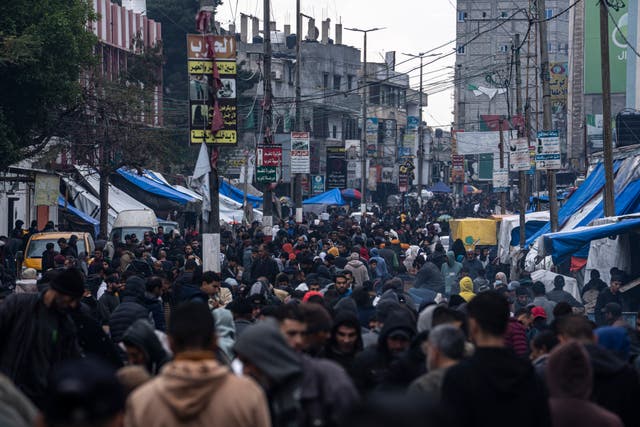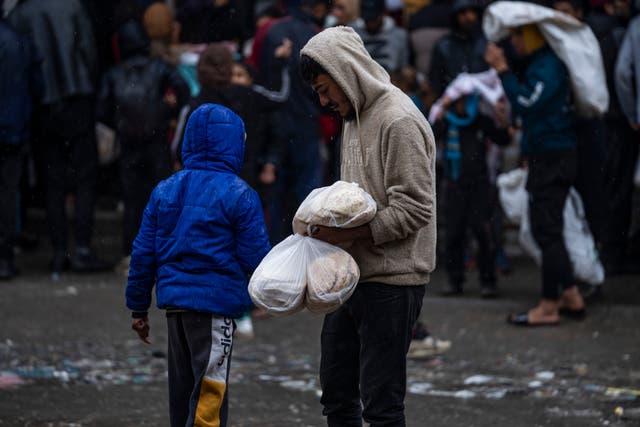The World Food Programme said it has paused deliveries of food to isolated northern Gaza because of increasing chaos across the territory, increasing fears of potential starvation.
A study by the UN children’s agency warned that one in six children in the north are acutely malnourished.
Entry of aid trucks into the besieged territory has sharply declined by more than half in the past two weeks, according to UN figures.
Overwhelmed UN and relief workers said intake of trucks and distribution have been crippled by Israeli failure to ensure convoys’ safety amid its bombardment and ground offensive and by a breakdown in security, with hungry Palestinians frequently overwhelming trucks to take food.

Heavy fighting and air strikes have flared in the past two days in areas of northern Gaza that the Israeli military said had been largely cleared of Hamas weeks ago.
The military on Tuesday ordered the evacuation of two neighbourhoods on Gaza City’s southern edge, an indication that militants are still putting up stiff resistance.
The north, including Gaza City, has been isolated since Israeli troops first moved into it in late October.
Large swathes of the city have been reduced to rubble, but several hundred thousand Palestinians remain largely cut off from aid.
They describe famine-like conditions, in which families limit themselves to one meal a day and often resort to mixing animal and bird fodder with grains to bake bread.
Ayman Abu Awad, who lives in Zaytoun, said he eats one meal a day to save whatever he can for his four children.
“People have eaten whatever they find, including animal feed and rotten bread,” he said.
The World Food Programme said it was forced to pause aid to the north because of “complete chaos and violence due to the collapse of civil order”.
It said it had first suspended deliveries to the north three weeks ago after a strike hit an aid truck.
It tried resuming this week, but convoys on Sunday and Monday faced gunfire and crowds of hungry people stripping goods and beating one driver.
It called for the opening of crossing points for aid directly into northern Gaza from Israel and a better notification system to co-ordinate with the Israeli military.
It warned of a “precipitous slide into hunger and disease”, saying: “People are already dying from hunger-related causes.”
Unicef official Ted Chaiban said in a statement that Gaza “is poised to witness an explosion in preventable child deaths, which would compound the already unbearable level of child deaths in Gaza”.
The war began when Hamas-led militants rampaged across communities in southern Israel, killing some 1,200 people, mostly civilians, and taking around 250 hostage.
The militants still hold some 130 captives, around a fourth of whom are believed to be dead.
Qatar’s Foreign Ministry said it had confirmation that Hamas started delivering medications to the hostages, a month after the medications arrived in Gaza under a deal mediated by the Gulf state and France.

Israel has vowed to expand its offensive to Rafah, where more than half of the territory’s population of 2.3 million has sought refuge from fighting elsewhere.
Gaza’s Health Ministry said on Tuesday that the total Palestinian death toll since October 7 had risen to 29,195.
The ministry does not differentiate between fighters and civilians in its records, but says women and children make up two-thirds of those killed.
More than 69,000 Palestinians have been wounded, according to the ministry.
Israel says it has killed more than 10,000 Palestinian militants but has provided no evidence for its count.
The military blames the high civilian death toll on Hamas because the militant group fights in dense residential neighbourhoods.
The military says 237 of its soldiers have been killed since the start of the ground offensive in late October.






